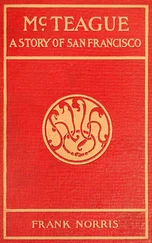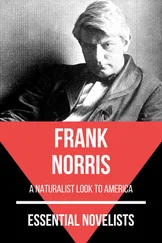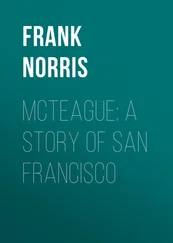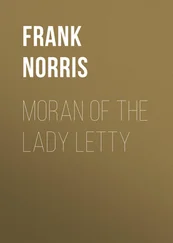Frank Norris - The Pit - A Story of Chicago
Здесь есть возможность читать онлайн «Frank Norris - The Pit - A Story of Chicago» — ознакомительный отрывок электронной книги совершенно бесплатно, а после прочтения отрывка купить полную версию. В некоторых случаях можно слушать аудио, скачать через торрент в формате fb2 и присутствует краткое содержание. Жанр: foreign_prose, literature_19, foreign_antique, на английском языке. Описание произведения, (предисловие) а так же отзывы посетителей доступны на портале библиотеки ЛибКат.
- Название:The Pit: A Story of Chicago
- Автор:
- Жанр:
- Год:неизвестен
- ISBN:нет данных
- Рейтинг книги:3 / 5. Голосов: 1
-
Избранное:Добавить в избранное
- Отзывы:
-
Ваша оценка:
- 60
- 1
- 2
- 3
- 4
- 5
The Pit: A Story of Chicago: краткое содержание, описание и аннотация
Предлагаем к чтению аннотацию, описание, краткое содержание или предисловие (зависит от того, что написал сам автор книги «The Pit: A Story of Chicago»). Если вы не нашли необходимую информацию о книге — напишите в комментариях, мы постараемся отыскать её.
The Pit: A Story of Chicago — читать онлайн ознакомительный отрывок
Ниже представлен текст книги, разбитый по страницам. Система сохранения места последней прочитанной страницы, позволяет с удобством читать онлайн бесплатно книгу «The Pit: A Story of Chicago», без необходимости каждый раз заново искать на чём Вы остановились. Поставьте закладку, и сможете в любой момент перейти на страницу, на которой закончили чтение.
Интервал:
Закладка:
Jadwin did not go directly into Gretry's main office, but instead made his way in at the entrance of the Board of Trade Building, and going on past the stairways that on either hand led up to the "Floor" on the second story, entered the corridor beyond, and thence gained the customers' room of Gretry, Converse & Co. All the more important brokerage firms had offices on the ground floor of the building, offices that had two entrances, one giving upon the street, and one upon the corridor of the Board. Generally the corridor entrance admitted directly to the firm's customers' room. This was the case with the Gretry-Converse house.
Once in the customers' room, Jadwin paused, looking about him.
He could not tell why Gretry had so earnestly desired him to come to his office that morning, but he wanted to know how wheat was selling before talking to the broker. The room was large, and but for the lighted gas, burning crudely without globes, would have been dark. All one wall opposite the door was taken up by a great blackboard covered with chalked figures in columns, and illuminated by a row of overhead gas jets burning under a tin reflector. Before this board files of chairs were placed, and these were occupied by groups of nondescripts, shabbily dressed men, young and old, with tired eyes and unhealthy complexions, who smoked and expectorated, or engaged in interminable conversations.
In front of the blackboard, upon a platform, a young man in shirt-sleeves, his cuffs caught up by metal clamps, walked up and down. Screwed to the blackboard itself was a telegraph instrument, and from time to time, as this buzzed and ticked, the young man chalked up cabalistic, and almost illegible figures under columns headed by initials of certain stocks and bonds, or by the words "Pork," "Oats," or, larger than all the others, "May Wheat." The air of the room was stale, close, and heavy with tobacco fumes. The only noises were the low hum of conversations, the unsteady click of the telegraph key, and the tapping of the chalk in the marker's fingers.
But no one in the room seemed to pay the least attention to the blackboard. One quotation replaced another, and the key and the chalk clicked and tapped incessantly. The occupants of the room, sunk in their chairs, seemed to give no heed; some even turned their backs; one, his handkerchief over his knee, adjusted his spectacles, and opening a newspaper two days old, began to read with peering deliberation, his lips forming each word. These nondescripts gathered there, they knew not why. Every day found them in the same place, always with the same fetid, unlighted cigars, always with the same frayed newspapers two days old. There they sat, inert, stupid, their decaying senses hypnotised and soothed by the sound of the distant rumble of the Pit, that came through the ceiling from the floor of the Board overhead.
One of these figures, that of a very old man, blear-eyed, decrepit, dirty, in a battered top hat and faded frock coat, discoloured and weather-stained at the shoulders, seemed familiar to Jadwin. It recalled some ancient association, he could not say what. But he was unable to see the old man's face distinctly; the light was bad, and he sat with his face turned from him, eating a sandwich, which he held in a trembling hand.
Jadwin, having noted that wheat was selling at 94, went away, glad to be out of the depressing atmosphere of the room.
Gretry was in his office, and Jadwin was admitted at once. He sat down in a chair by the broker's desk, and for the moment the two talked of trivialities. Gretry was a large, placid, smooth-faced man, stolid as an ox; inevitably dressed in blue serge, a quill tooth-pick behind his ear, a Grand Army button in his lapel. He and Jadwin were intimates. The two had come to Chicago almost simultaneously, and had risen together to become the wealthy men they were at the moment. They belonged to the same club, lunched together every day at Kinsley's, and took each other driving behind their respective trotters on alternate Saturday afternoons. In the middle of summer each stole a fortnight from his business, and went fishing at Geneva Lake in Wisconsin.
"I say," Jadwin observed, "I saw an old fellow outside in your customers' room just now that put me in mind of Hargus. You remember that deal of his, the one he tried to swing before he died. Oh—how long ago was that? Bless my soul, that must have been fifteen, yes twenty years ago."
The deal of which Jadwin spoke was the legendary operation of the Board of Trade—a mammoth corner in September wheat, manipulated by this same Hargus, a millionaire, who had tripled his fortune by the corner, and had lost it by some chicanery on the part of his associate before another year. He had run wheat up to nearly two dollars, had been in his day a king all-powerful. Since then all deals had been spoken of in terms of the Hargus affair. Speculators said, "It was almost as bad as the Hargus deal." "It was like the Hargus smash." "It was as big a thing as the Hargus corner." Hargus had become a sort of creature of legends, mythical, heroic, transfigured in the glory of his millions.
"Easily twenty years ago," continued Jadwin. "If Hargus could come to life now, he'd be surprised at the difference in the way we do business these days. Twenty years. Yes, it's all of that. I declare, Sam, we're getting old, aren't we?"
"I guess that was Hargus you saw out there," answered the broker. "He's not dead. Old fellow in a stove-pipe and greasy frock coat? Yes, that's Hargus."
"What!" exclaimed Jadwin. " That Hargus?"
"Of course it was. He comes 'round every day. The clerks give him a dollar every now and then."
"And he's not dead? And that was Hargus, that wretched, broken—whew! I don't want to think of it, Sam!" And Jadwin, taken all aback, sat for a moment speechless.
"Yes, sir," muttered the broker grimly, "that was Hargus."
There was a long silence. Then at last Gretry exclaimed briskly:
"Well, here's what I want to see you about."
He lowered his voice: "You know I've got a correspondent or two at Paris—all the brokers have—and we make no secret as to who they are. But I've had an extra man at work over there for the last six months, very much on the quiet. I don't mind telling you this much—that he's not the least important member of the United States Legation. Well, now and then he is supposed to send me what the reporters call "exclusive news"—that's what I feed him for, and I could run a private steam yacht on what it costs me. But news I get from him is a day or so in advance of everybody else. He hasn't sent me anything very important till this morning. This here just came in."
He picked up a despatch from his desk and read:
"'Utica—headquarters—modification—organic—concomitant—within one month,' which means," he added, "this. I've just deciphered it," and he handed Jadwin a slip of paper on which was written:
"Bill providing for heavy import duties on foreign grains certain to be introduced in French Chamber of Deputies within one month."
"Have you got it?" he demanded of Jadwin, as he took the slip back. "Won't forget it?" He twisted the paper into a roll and burned it carefully in the office cuspidor.
"Now," he remarked, "do you come in? It's just the two of us, J., and I think we can make that Porteous clique look very sick."
"Hum!" murmured Jadwin surprised. "That does give you a twist on the situation. But to tell the truth, Sam, I had sort of made up my mind to keep out of speculation since my last little deal. A man gets into this game, and into it, and into it, and before you know he can't pull out—and he don't want to. Next he gets his nose scratched, and he hits back to make up for it, and just hits into the air and loses his balance—and down he goes. I don't want to make any more money, Sam. I've got my little pile, and before I get too old I want to have some fun out of it."
Читать дальшеИнтервал:
Закладка:
Похожие книги на «The Pit: A Story of Chicago»
Представляем Вашему вниманию похожие книги на «The Pit: A Story of Chicago» списком для выбора. Мы отобрали схожую по названию и смыслу литературу в надежде предоставить читателям больше вариантов отыскать новые, интересные, ещё непрочитанные произведения.
Обсуждение, отзывы о книге «The Pit: A Story of Chicago» и просто собственные мнения читателей. Оставьте ваши комментарии, напишите, что Вы думаете о произведении, его смысле или главных героях. Укажите что конкретно понравилось, а что нет, и почему Вы так считаете.












